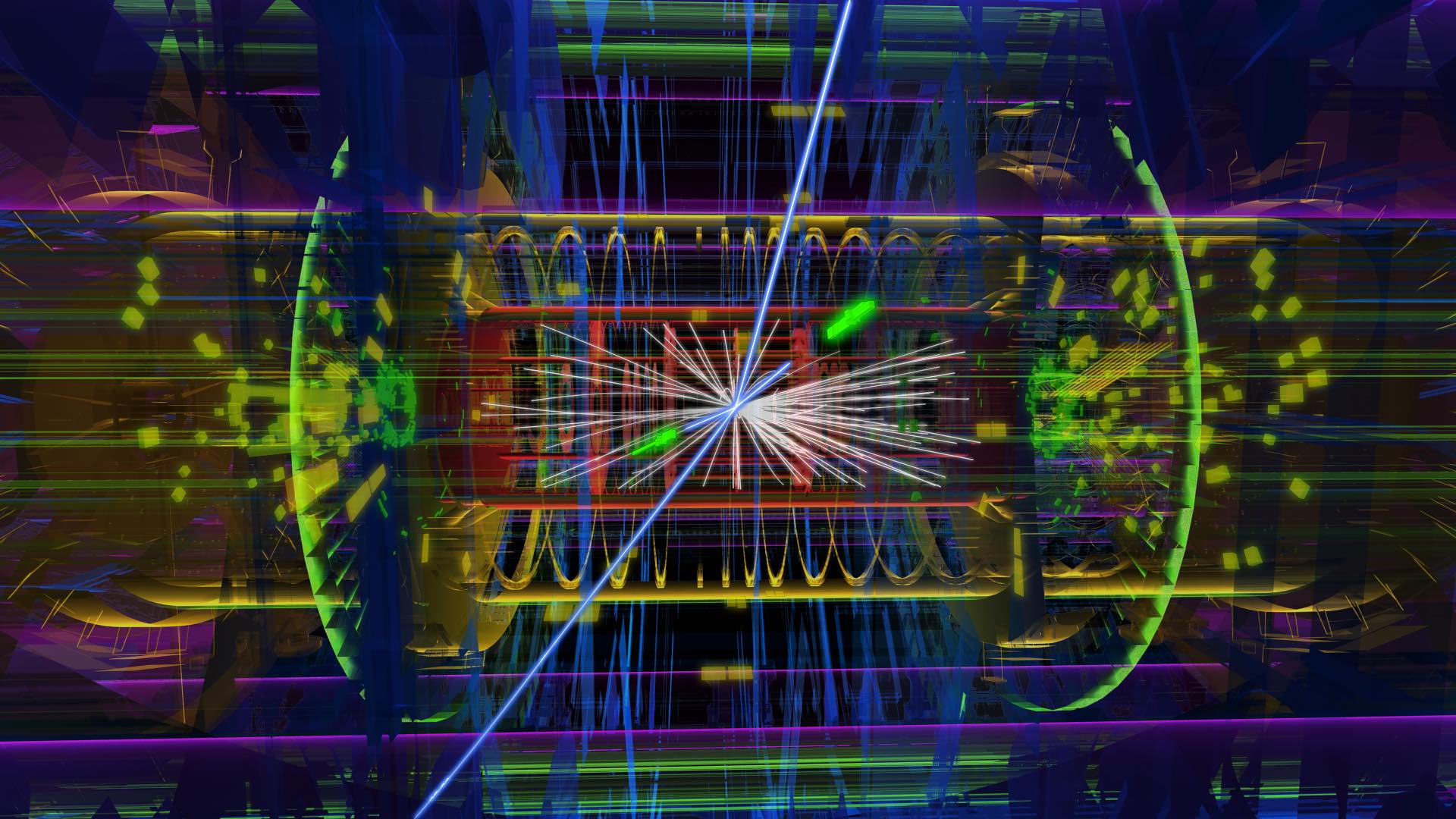This kick-off webinar is the first of several LUMI webinars expected to take place in 2020. Do check out the LUMI website for future webinars www.lumi-supercomputer.eu.
“The European leadership-class supercomputer of the North,” is what Pekka Manninen, Program Director at CSC, IT Center for Science Ltd., hopes to achieve in the coming years.
Through the EuroHPC initiative the main objective will be: “acquiring and providing a world-class supercomputing and data infrastructure for Europe’s scientific, industrial and public users,” as well as “supporting an ambitious research and innovation agenda.”
The first generation of EuroHPC systems was announced in June of 2019, and it consists of 3 pre-exascale systems (150+ Pflop/s) to Finland, Italy and Spain and 5 petascale systems (4+ Pflop/s) to Czech Republic, Bulgaria, Luxembourg, Portugal and Slovenia.
The LUMI (Large Unified Modern Infrastructure) consortium will provide one of the EuroHPC pre-exascale system. LUMI consists of 9 countries (Finland, Belgium, Czech Republic, Denmark, Estonia, Norway, Poland, Sweden, and Switzerland) with strong national HPC centers providing competences, knowledge transfer and sharing and user support for the EuroHPC systems.
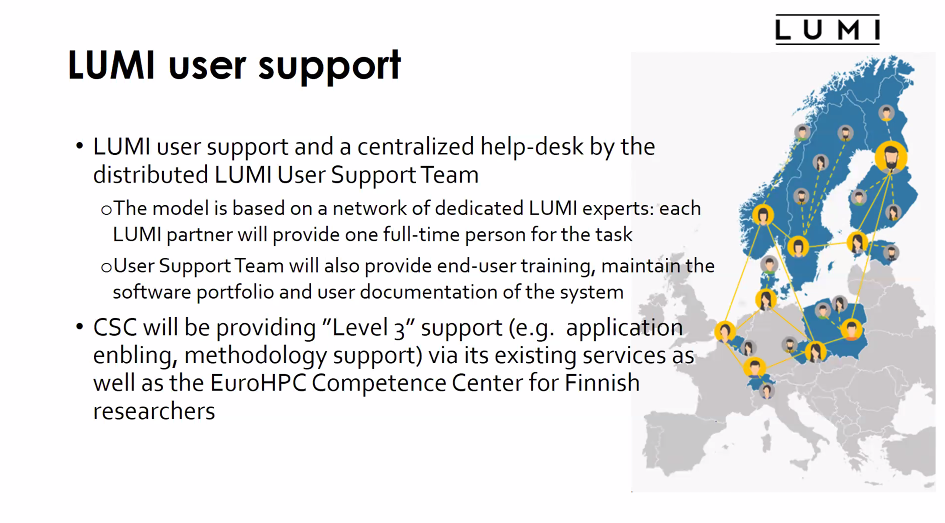
User Support
The services offered by LUMI will enhance user experience through high-level interfaces on LUMI, a rich stack of pre-installed software (for commercial and community), and curated large reference datasets. A novel concept LUMI would like to provide, is a centralized help-desk, LUMI User Support Team, to harvest competencies and to assist end users. The LUMI Support Team will provide end-user training, maintenance of the software portfolio and user documentation of EuroHPC systems.
Denmark is an active member of the LUMI consortium, contributing to both the technical set up of the machine and the user support program. “User support, including high-level user support to enable more applications and research areas to benefit from the large computational power of LUMI, is a core element of the consortium plan”, says Prof. Claudio Pica, director of the eScience center and member of the LUMI Operational Management Board.
Denmark is about to build a National HPC Competence Center, partially funded by the EuroHPC Joint Undertaking, which will be coordinated by DeiC and based at all danish universities. The National HPC Competence Center will play an integral part for both the user support and to facilitate the access of danish companies and industries to the available HPC resources.
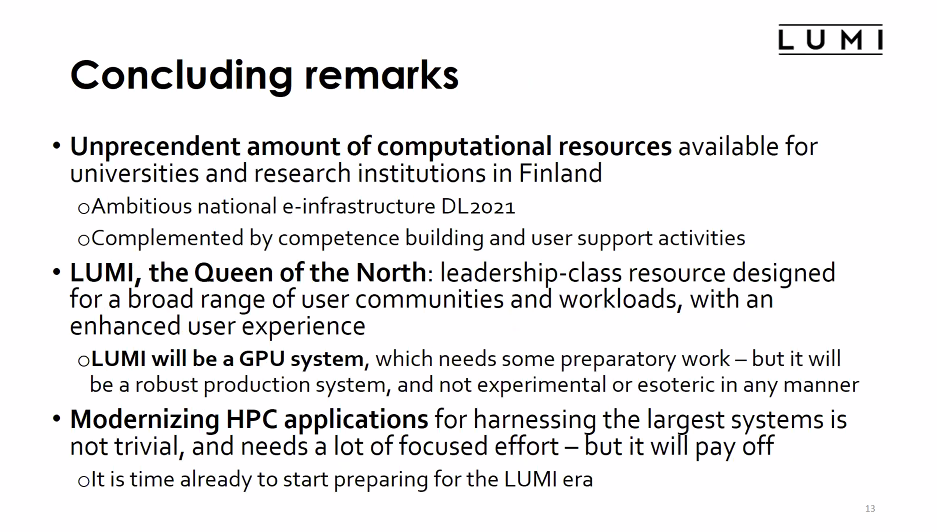
Digital Humanities
Professor Jörg Tiedemann from the University of Helsinki, Department of Digitatl Humanities gave a presentation on how LUMI has been able to assist him in his research on Natural Language Understanding with Multilingual Neural Models – or the Power of GPU’s in Modern Language Technology.
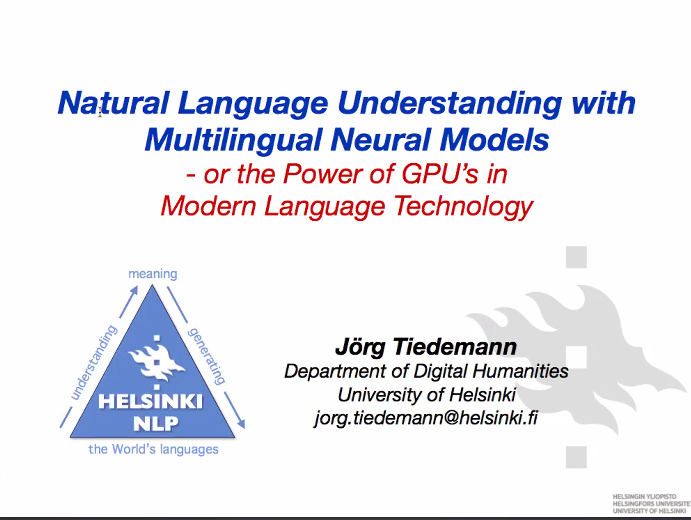
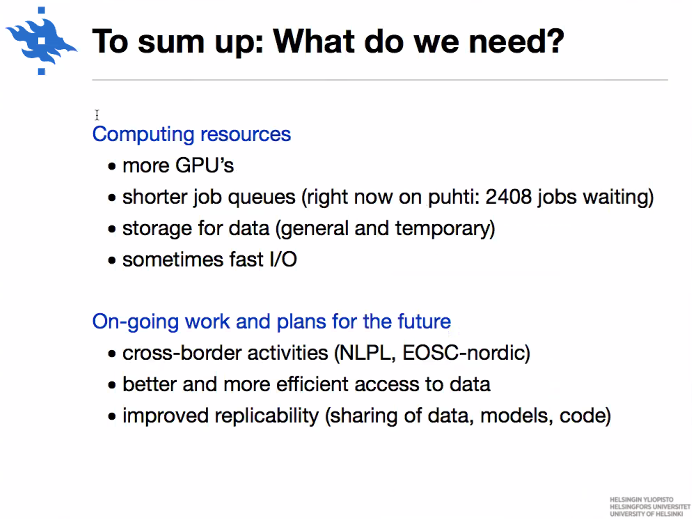
Pre-Exascale Computing
Professor Ilpo Vattulainen, from the University of Helsinki, Department of Physics ended the presentations with his input. Here are some of his takeaway slides:
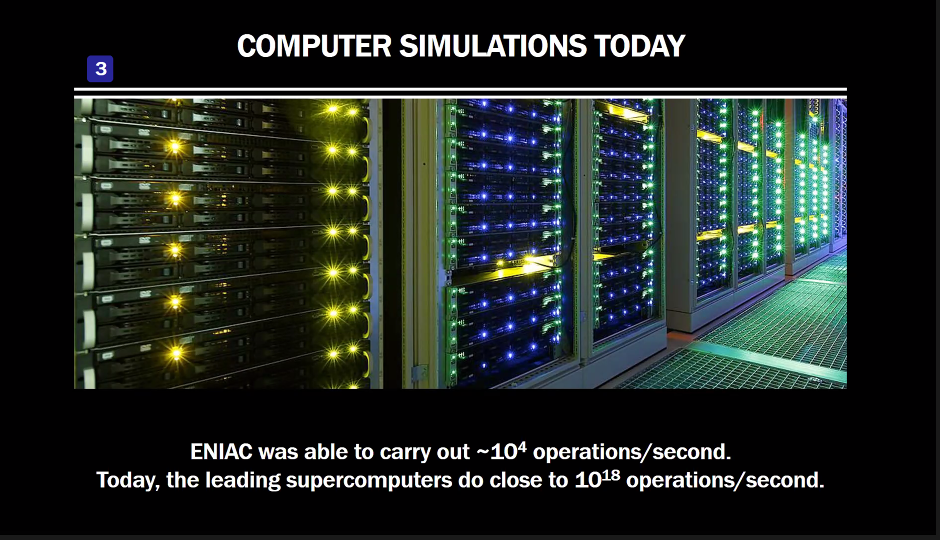
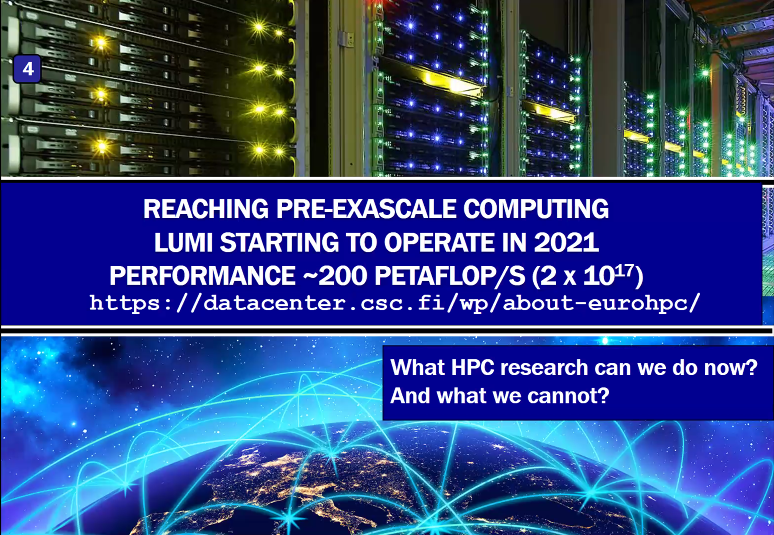
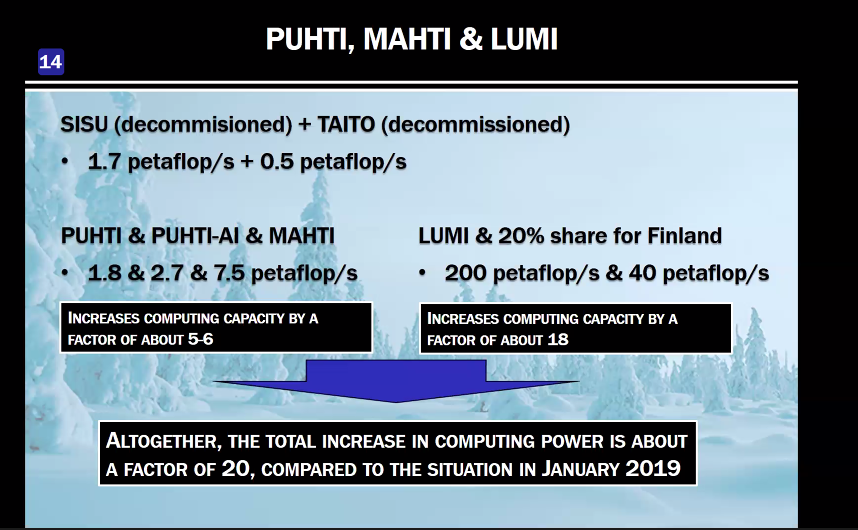
Professor Ilpo Vattulainen’s concluding remarks “It takes time until demand is matching supply. My appeal is: we need a change of mindset. New, big, problems and ways of thinking of possible ideas take time to nurture.”
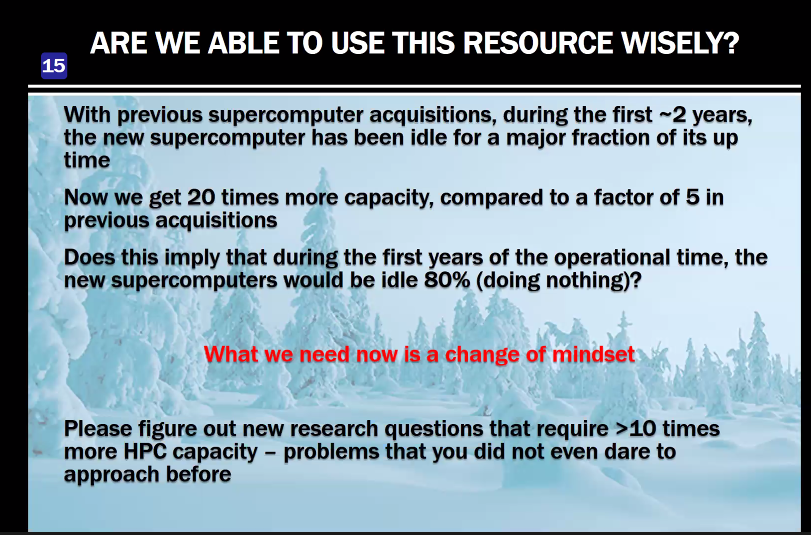
The recording of the webinar is now available on LUMI’s website.
To keep up with LUMI news, please subscribe to the LUMI quarterly newsletter.

